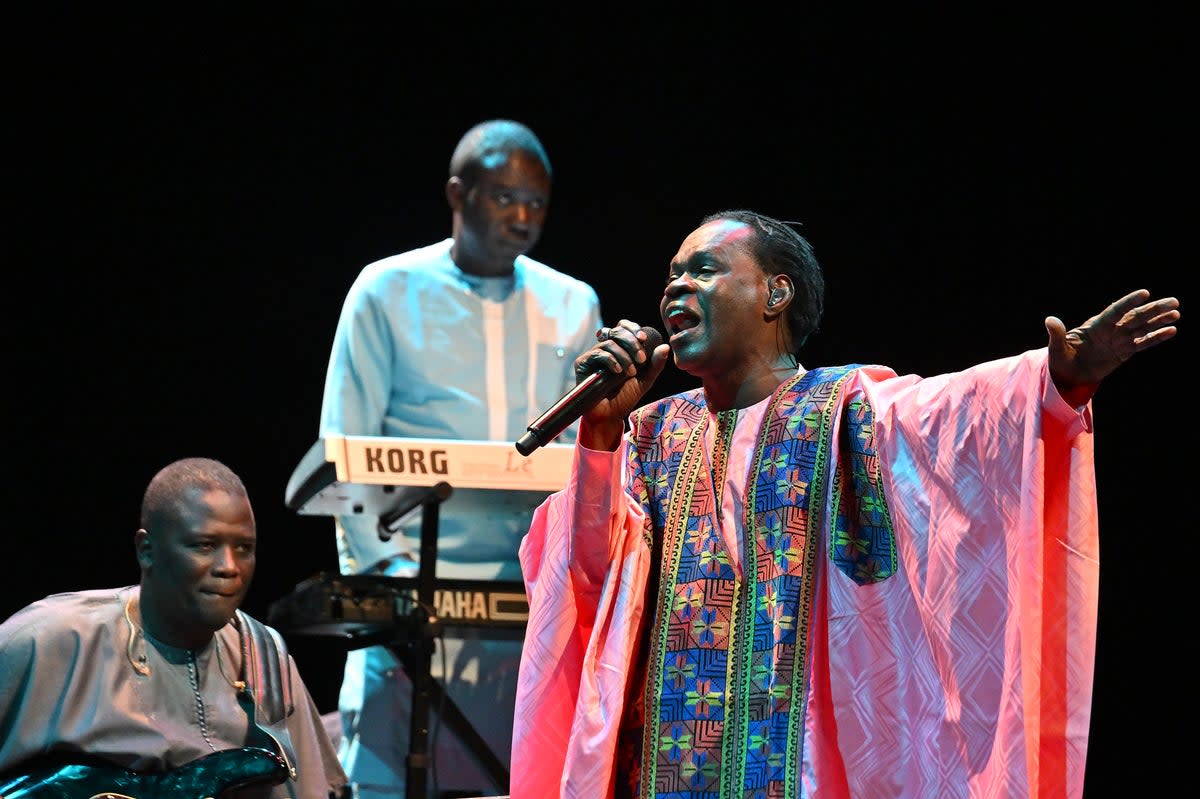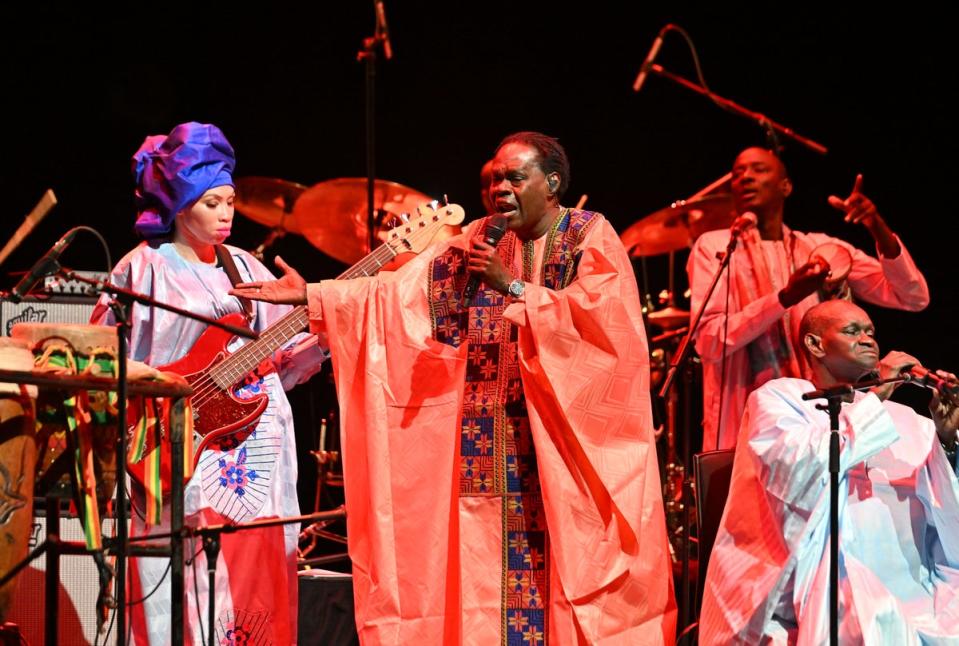Baaba Maal live at the Barbican review: a visionary artist

A frontline of percussionists on djembe, sabar and conga drums beat out a fierce welcome. Then, from somewhere behind us, there it was. The same voice that soared – giant, powerful, timeless – over a mythical landscape in the opening minutes of Black Panther: Wakanda Forever. The voice that introduced a multitude of newcomers to African music, resonating around all three tiers of the Barbican with the easy strength that comes from singing unamplified to hundreds of people in Podor, a town in far north Senegal.
The voice of Baaba Maal.
As the West African superstar descended one set of stairs, charismatic in an orange boubou, his percussionist Massamba Diop descended another, using a stick to pound the tama ‘talking’ drum clamped under his armpit. Onstage, a band playing keyboards, guitars, drums and a ngoni-lute flanked Maal’s childhood friend Mansour Seck, a blind singer and guitarist and born into the griot caste; a hereditary lineage of historians, poets, musicians and storytellers.
The two had toured villages across western Africa before releasing their 1985 acoustic classic Djam Leelii and forming the band Daande Lenol, after which Maal – a fisherman’s son – would go on to forge a 30-plus year solo career marked by experimentation, collaboration (with the likes of Brian Eno, U2, and Mumford & Sons) and an ancient-to-future aesthetic.
Seck isn’t on Maal’s new album Being, which blends traditional and western instrumentation with sci-fi soundscapes. But this live show, Maal’s first at the Barbican in 20 years, largely eschews effects in favour of authentic sounds from the Motherland. A stripped back voice-and-guitar duet between Seck and Maal was quietly beautiful. ‘Wallahi!‘ Seck exclaimed. ‘I swear to God!’ There was rap-friendly Fulani wordplay, a folk song from Guinea with a kora-harp sample; an upturned gourd played with clenched fists and a scorching electric bass solo by Mah Koudia, cool as you like in her flower-patterned robe and blue origami head wrap.

Between songs Maal, a recent UN Goodwill Ambassador, told of the desertification of the Sahel region, and championed community, awareness, and compassion. But too often relentless percussive cross-rhythms lacked nuance, and defied engagement. Yerimayo Celebration, a highlight of Being, never fully sank into its lush groove; the guest appearance of nervous child actor and singer Mason Mingle (Maal’s alter-ego in the song’s wonderful video) probably seemed like a good idea at the time.
Still, by the arrival of horn trio Kick Horns we were up and dancing to an Afro-Cuban salsa tune given a Senegalese twist, Maal stage-bombed by fans keen to ‘spray’ paper money or partner-dance with conga player Mamadou Sarr.
Then, by way of encore, came Wakanda, a song reworked from a Fulani folk tune about the death of an elephant, a metaphor for a fallen leader. And with it, soaring oh-so-powerfully around the entire auditorium, came that voice.


